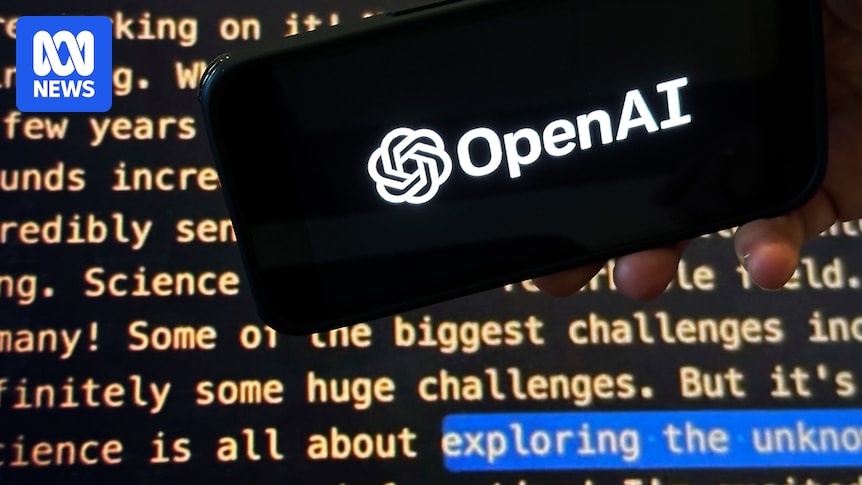
OpenAI has launched its own web browser, Atlas, marking a significant foray into a market long dominated by Google. The introduction of Atlas positions OpenAI, renowned for its ChatGPT technology, as a direct competitor to Google Chrome at a time when artificial intelligence is increasingly becoming a cornerstone of internet searches.
The move to make its AI chatbot a central feature of online browsing could enable OpenAI, the world’s most valuable startup, to capture more internet traffic and boost revenue through digital advertising. However, this shift also poses a potential threat to online publishers if ChatGPT effectively provides users with summarized information, reducing the need for traditional web exploration.
OpenAI’s Strategic Move
OpenAI, based in San Francisco, has revealed that ChatGPT already boasts over 800 million users, though many utilize the free version. The company, which also offers paid subscriptions, is currently operating at a loss and is actively seeking avenues to achieve profitability. Atlas was launched on Tuesday for Apple laptops, with plans to expand availability to Microsoft Windows, Apple’s iOS, and Google’s Android systems.
OpenAI CEO Sam Altman described the launch as a “rare, once-a-decade opportunity to rethink what a browser can be about and how to use one.” Despite the excitement, analysts like Paddy Harrington from Forrester caution that competing against Google’s massive market share presents a formidable challenge.
Challenges and Opportunities
The launch of Atlas comes on the heels of a notable legal decision. Just months ago, an OpenAI executive expressed interest in acquiring Google’s Chrome browser if a federal judge mandated its sale to curb Google’s monopoly. However, US District Judge Amit Mehta ruled against the sale, citing the transformative impact of AI advancements on the competitive landscape.
Atlas faces stiff competition from Chrome, which boasts approximately 3 billion users worldwide and has integrated AI features from Google’s Gemini technology. Chrome’s success story, having dethroned Microsoft’s Internet Explorer, serves as a potential blueprint for OpenAI’s ambitions. When Chrome debuted in 2008, it quickly gained popularity by offering faster page loads and other advantages, ultimately leading Microsoft to replace Explorer with the Edge browser.
Innovative Features and Market Dynamics
OpenAI’s Atlas offers unique features, including a premium “agent mode” that autonomously navigates the internet on behalf of users, utilizing their browsing history and search objectives. Altman envisions this chatbot interface replacing traditional URL bars as the primary means of internet interaction.
However, Harrington raises concerns about the loss of user agency, questioning whether the browser’s actions truly reflect user intent or are influenced by advertising preferences. “Is it really you, really what you’re thinking, or what that engine decides it’s going to do?” he asks.
The Broader Impact of AI in Browsing
As AI continues to shape the browsing experience, Google’s own AI-generated responses have become a standard feature, appearing at the top of search results. This reliance on AI chatbots to summarize information has sparked concerns about the technology’s tendency to produce inaccurate information, a phenomenon known as “hallucination.”
The implications for the news industry are significant, with organizations like the New York Times suing OpenAI for copyright infringement, while others, including the Associated Press, have opted for licensing agreements. A recent study by the European Broadcasting Union highlighted the shortcomings of AI assistants, including ChatGPT and Google’s Gemini, with nearly half of their responses failing to meet “high-quality” journalism standards.
“A study of four top AI assistants showed nearly half their responses were flawed and fell short of the standards of ‘high-quality’ journalism.”
Looking Ahead
As OpenAI ventures into the browser market with Atlas, the company faces the dual challenge of competing against established giants like Google while addressing the broader implications of AI-driven browsing. The success of Atlas will depend on its ability to innovate and capture user interest in a rapidly evolving digital landscape.
The coming months will reveal whether OpenAI’s bold move will redefine the browsing experience or if it will struggle to gain a foothold in a market dominated by longstanding players. As the competition heats up, the industry will be watching closely to see how AI continues to transform the way we interact with the internet.






